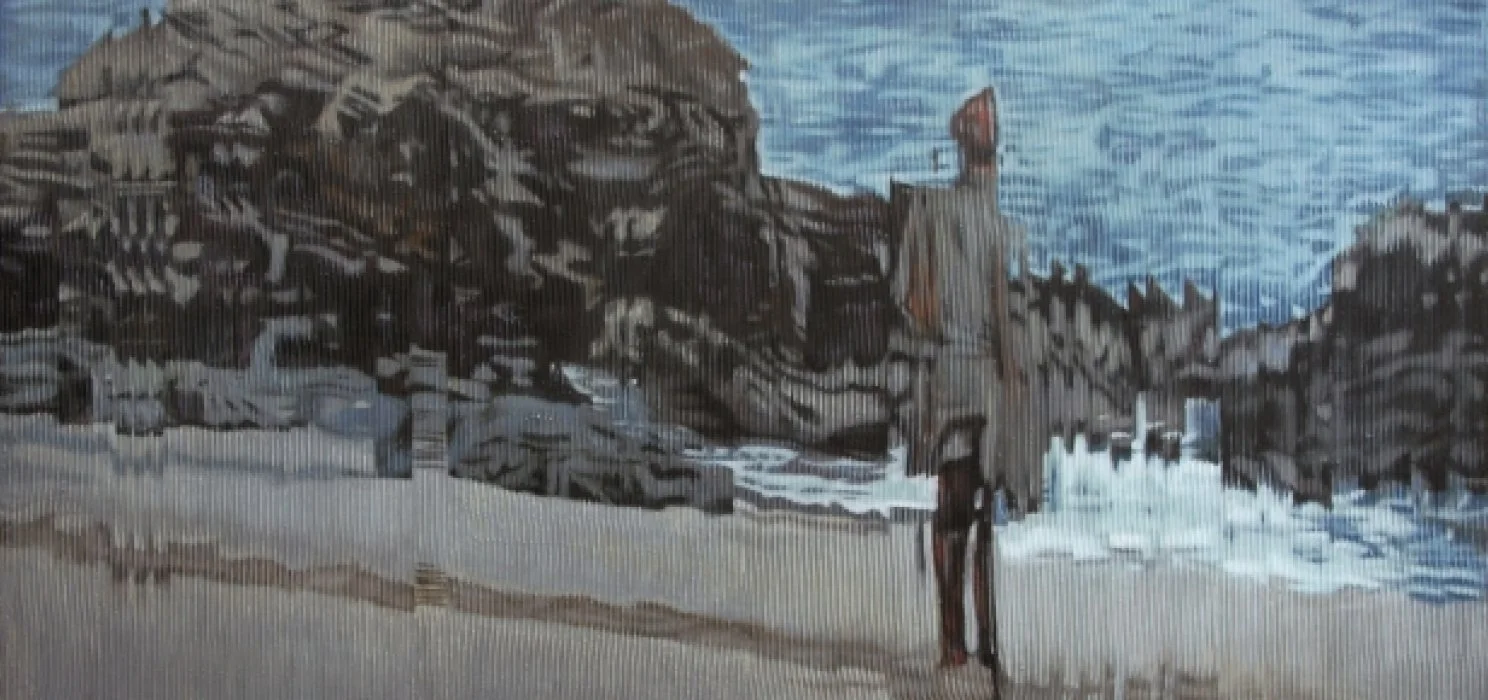Issue 141
Winter & Spring 2012
-
Welcome to the fourth issue of TriQuarterly Online. We are excited to present our first-ever collection of video essays, curated by accomplished video essayists John Bresland and Marilyn Freeman. We also have fiction from Bonnie Nadzam who recently received the the 2011 Center for Fiction's Flaherty Dunnan First Novel Prize for LAMB (Other Press, 2011). We are excited to showcase translated pieces from two international contributors. The first is prominent, Palestinian poet Ghassan Zaqtan. His work was translated from Arabic by Fady Joudah who also has poetry in this issue. The second is a short story from prolific Senegalese writer Boubacar Boris Diop. Finally, we have some new, young voices that we are eager to share. Please enjoy these writers as well as the rest of our outstanding new fiction, creative nonfiction, and poetry. We look forward to receiving your comments at triquarterlyonline@northwestern.edu.
EDITOR’S NOTE
One could argue that text, onscreen, feathered with images and sound, is becoming more like video. And video is becoming more like text. How are writers to contend with this? How does the visceral nature of digital technology—sound, image and the sometimes cruel edgelessness of the screen—alter the writer’s relationship to language? The seven video essays in this collection, curated by John Bresland and Marilyn Freeman, raise a host of thrilling questions, not least: How is writing today different than it was yesterday? What does it mean for writers to build a text with, as Virginia Woolf once cannily advised, whatever pieces come your way?
Managing Editor: Amanda Morris
Faculty Advisor: Susan Harris
Copy Editor: Ruth Goring
Graduate Fellow: Ben Schacht
Book Review Editors: Karen Zemanick, Leigh Arber
Fiction Editors: Matt Carmichael, Schuyler Dickson, Cathy Gao, Tedd Hawks, Sarah Kalsbeek, Ankur Thakkar, Stephanie Tran
Nonfiction Editor: Sarah Hollenbeck
Poetry Editor: Lana Rakhman
Chapbook Review Editor: Anthony Opal
Art Director: Patrick Allen Carberry
Staff: Emily Ayshford, Rebecca Bald, Danielle Burhop, Michelle Cabral, Matt Carmichael, Jen Companik, Vincent Francone, Cathy Gao, Amanda Gebhardt, Barbara Ghoshal, Eric Grawe, Dane Hamann, Noelle Havens, Elizabeth Herbert, Russ Hicks, Gretchen Kalwinski, Adam Kovac, Nath Jones, Jen Lawrence, Eldad Malamuth, Carrie Muehle, Dana Norris, Tien (Mimi) Nguyen, Hana Park, Cory Phare, Lydia Pudzianowski, Nate Renie, Mark Rentfro, Paula Root, Tal Rosenberg, Virginia Smith, Megan Marie Sullivan, Amanda Tague, and Myra Thompson
The One You Accidentally Found in the Mirror
Translated from Arabic by Fady Joudah
The one you accidentally found in the mirror
in its dark corner to be exact
was there alone thinking of you
befriending your solitude
The Camp Prostitute
Translated from Arabic by Fady Joudah
The intentions of those heading to her house
could be touched by fingers
chaste and proud.
Preliminary Sketch
Translated from Arabic by Fady Joudah
The talk that remained in the house, when we went out,
remained alone
and agitated
pacing its domains
like a stubborn wolf.
A Graphic 1995
Translated from Arabic by Fady Joudah
The endings are not ours
not anyone’s.
Endings belong to strangers
who weren’t born on wagons,
people we find in the dust of corridors
and who happen in speech
River Purgatoire
It was still early morning when I stopped to take her photograph just above the tree line, twelve thousand feet. Glory was sitting upright on the metal guardrail, her back to a high wall of rock and little aprons of old melting snow.
Gut Renovation
Contributor's Note
Until 2005, Williamsburg was a modest neighborhood in Brooklyn that was home to working- and middle-class Italians, Hispanics and Poles, to many small industries, and increasingly to artists who were fleeing Manhattan real estate prices.
Wolfvision
Contributor's Note by Nick Twemlow
Wolfvision is more than a joint collaboration between my wife and me. I did find the images and edit the piece and Robyn did write the voiceover script as a response to my edit. But there were many other participants. The woman who records webisodes of herself discussing her eating disorder.
October Fire
Contributor's Note
October Fire is a phenomenological exploration of interstitial place. It was filmed on location in California. We’d stopped off to visit family and friends in California while relocating from the Pacific Northwest to the east coast. It was a brief and surreal break—palm trees, sunshine, and surfers, in winter. And then the fires.
That Kind of Daughter
Contributor's Note
We often cherish literature for its ability to illuminate—creating scenes that we can visualize, projecting ideas from a written text that we can internalize and make dimensional within us. So does offering a visual counterpart to this experience take away some of that reader’s responsibility?
Grandpa
Contributor's Note
Grandpa has been three years in the making. I used several different types of film and video, including old Super 8 and Hi-8 family footage, color 16mm film, HD video shot in the TV studio at The Evergreen State College on the Sony HDC 1400, and in my parents’ home, the Panasonic AG-AF100.
Send New Beasts
Contributor's Note
I started making films when I got a Mac, and learned to use iMovie. Outside of family stuff, the first projects I took on were short silent films to use during poetry readings. In my experience, I had come to understand that poetry, read aloud, is intense, and demands a great deal of attention.
On the Form of the Video Essay
The essay’s innermost formal law is heresy.
— Theodor Adorno
Every time I read that line from “The Essay as Form,” Adorno’s midcentury manifesto, I feel the kind of joy I felt when I accidentally rang the fire alarm instead of the recess bell in seventh grade at St Francis of Assisi in Spokane. I feel guilty, involuntary joy. And I think of the video essay—the brainy, bratty, mixed breed love child of poetry, creative nonfiction, art house indies, documentary, and experimental media art.








